Contributed by Sparrow Marcioni
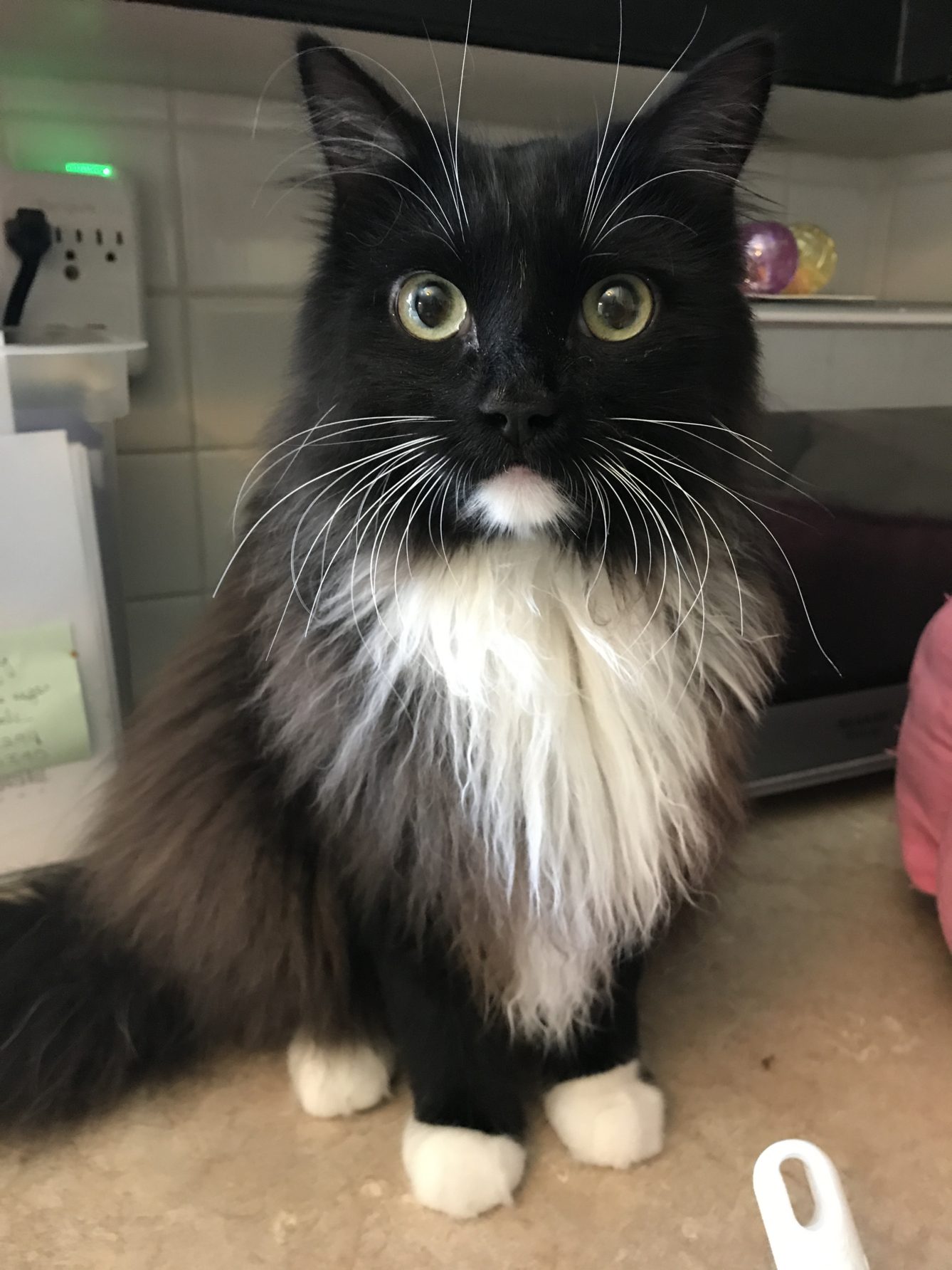
While working with traumatized cats over the years, it has become evident that it is not just humans who can suffer from PTSD (Post Traumatic Stress Disorder). According to the National Institute of Mental Health, PTSD is defined as “an anxiety disorder that can develop after exposure to a terrifying event or ordeal in which grave physical harm occurred or was threatened.” PTSD is not a disease; it’s a behavioral change that can be corrected once a pet has been properly diagnosed. It’s more difficult to diagnose in your pet because they can’t tell you if they are having nightmares or recurring visions of a past experience, but the symptoms still appear the same.
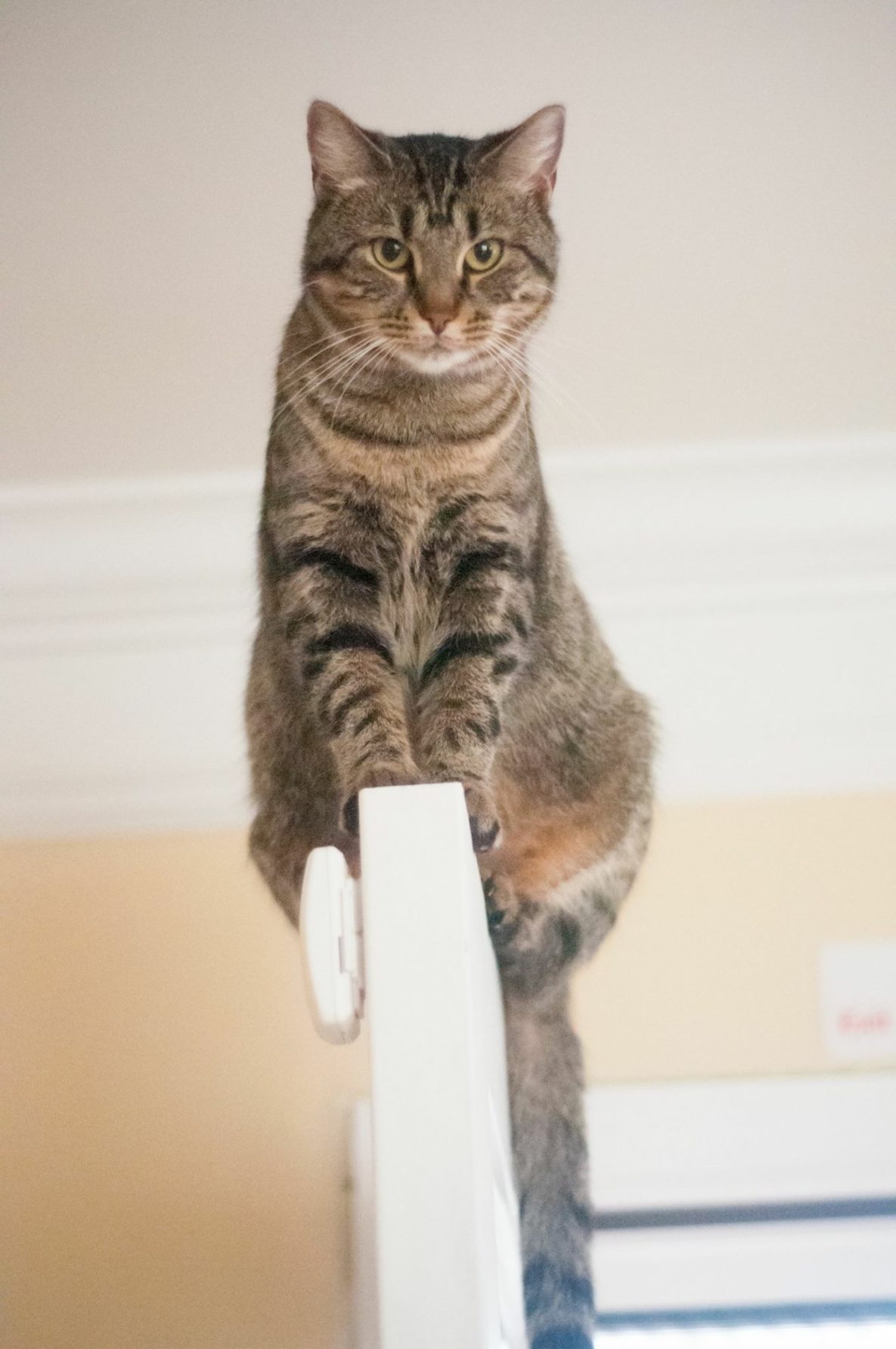
Many cats rescued from dire situations experience trauma from their experiences, but when PTSD symptoms manifest, it is necessary to seek professional help for your pet. Many of these cases require a combination of medication and drug therapy (clomipramine, fluoxetine and amitriptyline are most commonly used) but the outcomes are very promising. Only a professional behaviorist can diagnose PTSD, but recovery from trauma can be assisted by several therapies and treatments that are not harmful to try.
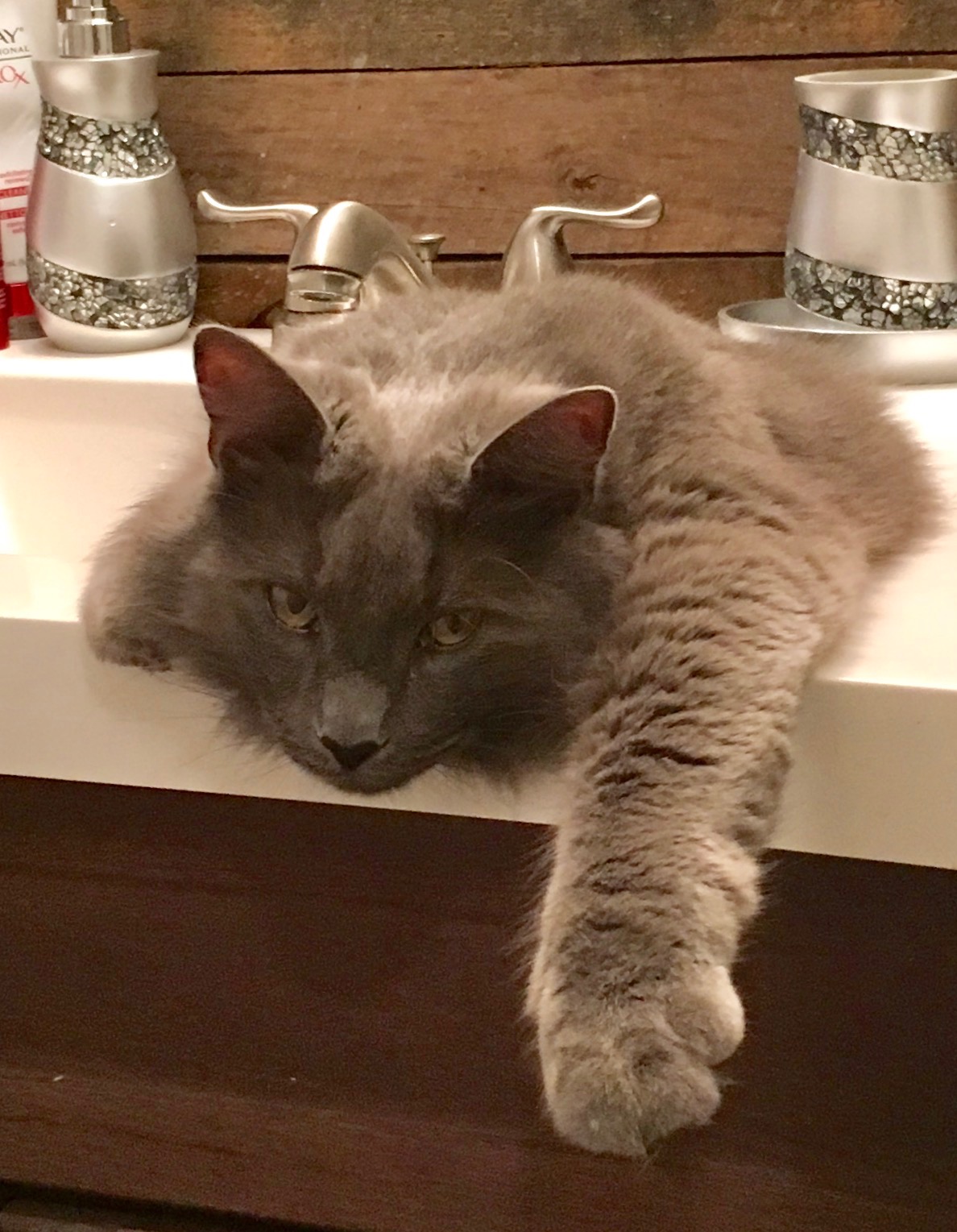
If you suspect your cat is suffering from a trauma, establishing a calm safe environment for them is critical. This can include pheromone or essential oil therapy in diffusers and playing calming music to muffle loud noises to create a peaceful atmosphere. If your kitty is fearful of other cats or animals, his or her safe place should be private. However, cats learn very quickly when observing the behavior of other cats. If they see another cat playing and being affectionate with you, it can make a very positive impression on them.
Keeping your cat active through interaction with you using toys and games such as those that involve removing food from a puzzle can help to heal and divert the focus from a traumatic memory or experience—think of it as creating new memories to take the place of those that caused fear. Remember that this passive therapy will require patience and becoming impatient or getting upset with your kitty can cause serious setbacks.
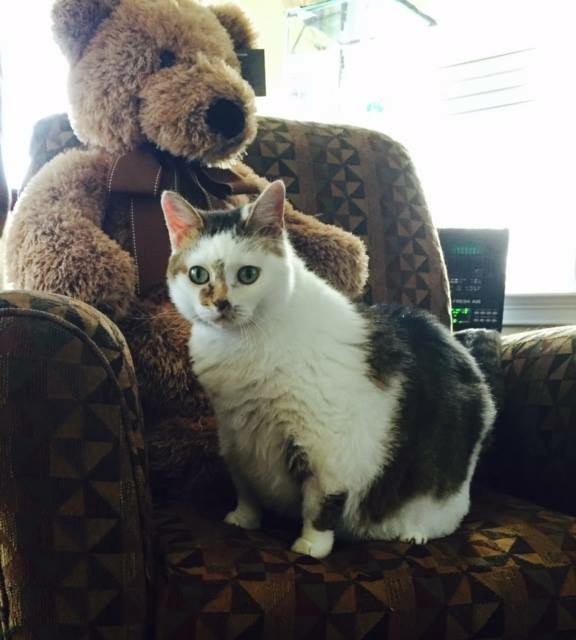
The use of supplements such as Omega 3 fatty acids, L-theanine and melatonin are also known to help relieve stress, as does stretching and scratching so be sure to provide some strong scratching posts. Some behaviorists even recommend treatments such as acupuncture, but weigh the benefits of any treatment against the potential stress of traveling to a therapist.
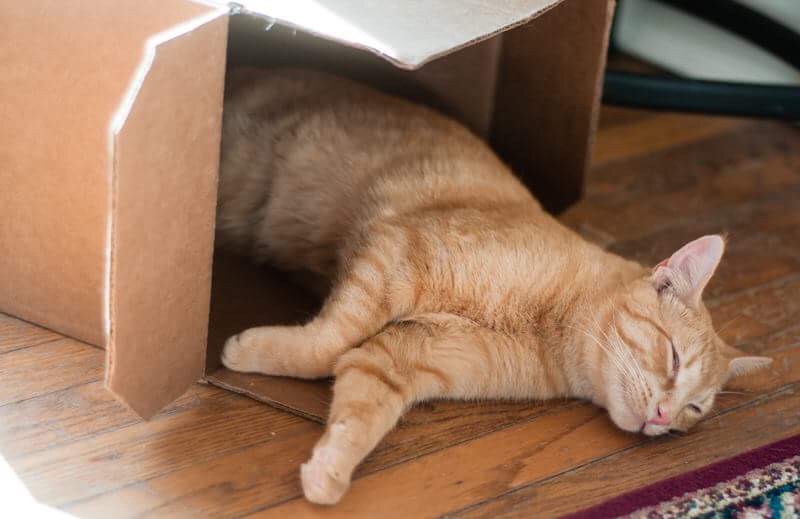
At our center, La Maison du Chat, we also use the line of Jackson Galaxy Spirit Essences, in particular “Safe Spaces” and Trauma Free” for fearful or traumatized kitties. These are all- natural floral and herbal remedies that are designed specifically to help with various personality and health issues. We have also deployed a small device called a Betar Relaxation box in each of the areas of the house. These devices emit a tone that can only be heard by the cats but mimic the sound at which the earth vibrates, contributing to a calm relaxed environment. We also utilize the healing arts of Reiki to accelerate healing from both physical and emotional injury.
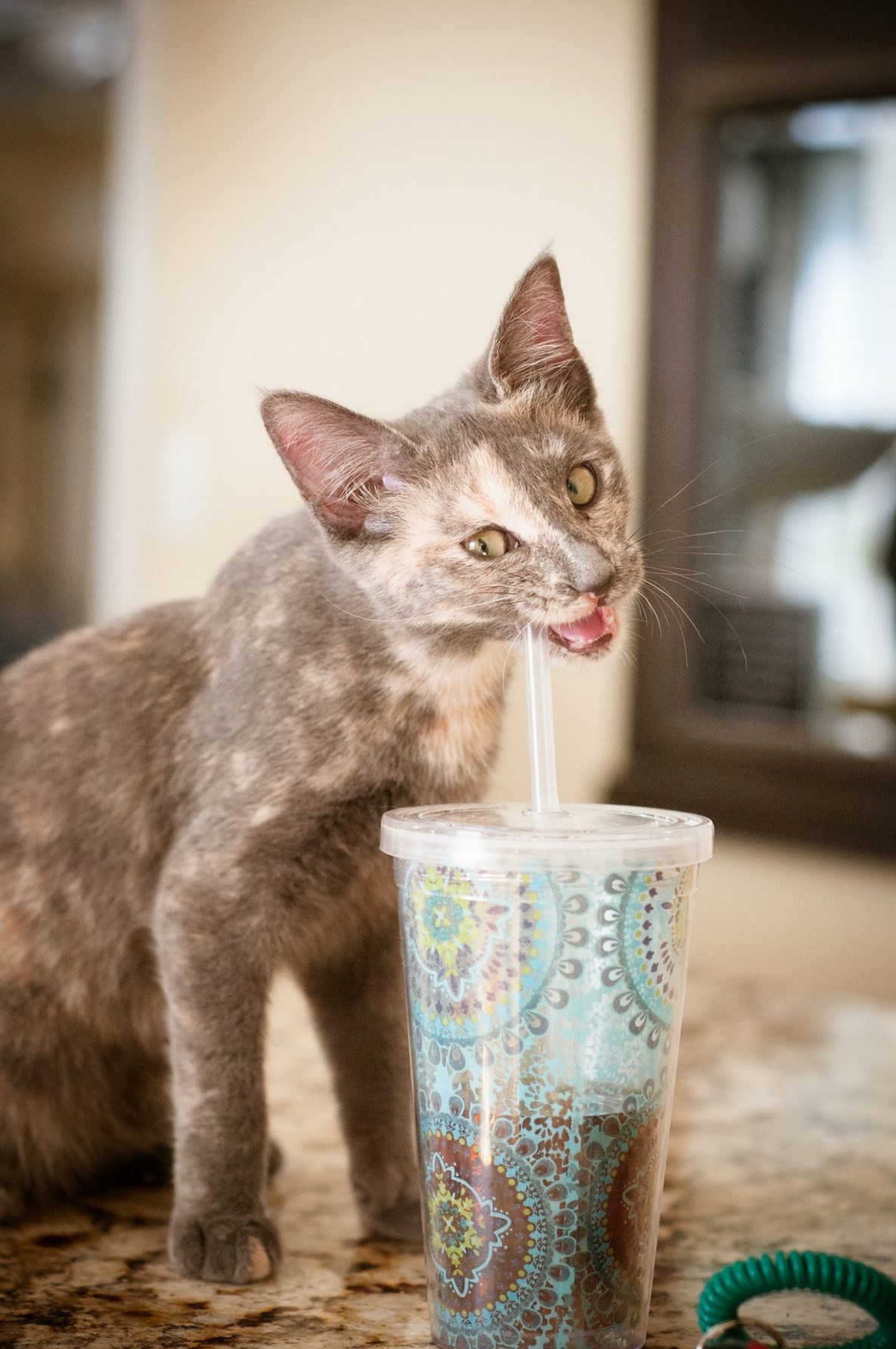
In brief, if you suspect your cat is experiencing PTSD, you will want to locate a professional behaviorist in your area, but you can begin therapy by applying some of the suggestions in this article that have been very successful for us.
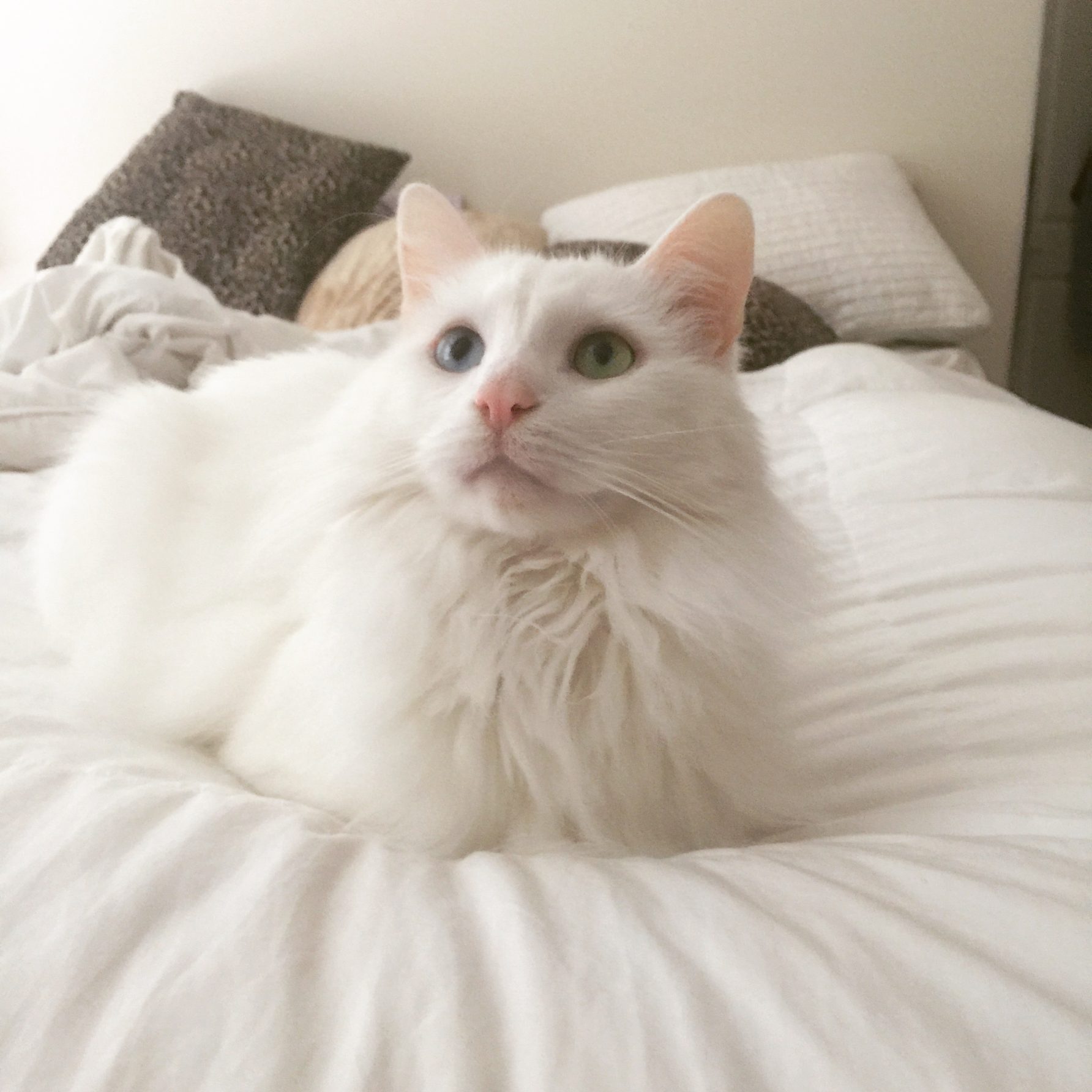
Here are some of the symptoms that are frequently observed in traumatized cats suffering from PTSD:
Uncharacteristic aggressiveness
Fearfulness, trembling
Decreased appetite and weight loss
Reduced interest in playing or interacting with other pets, people or both
Hypervigilance (an intense, “on guard” awareness of surroundings)
A tendency to be easily startled
Urinating or defecating inappropriately
Increased neediness or attachment
Excessive meowing
Destructive behavior
Extreme escape behavior to avoid a stressor (for example, climbing a wall to attempt to flee during a thunderstorm)
Sudden changes in temperament
Hiding for no reason
Fear of being alone
Sleep disturbances
Avoidance of people, places, or things associated with a traumatic event
Sparrow Marcioni is the Chief Behaviorist at La Maison du Chat, a Reiki practitioner and founder of CatRangers Cat Rescue. She is available for consultation by emailing sparrow@catrangers.org or by calling 770-831-5513.





